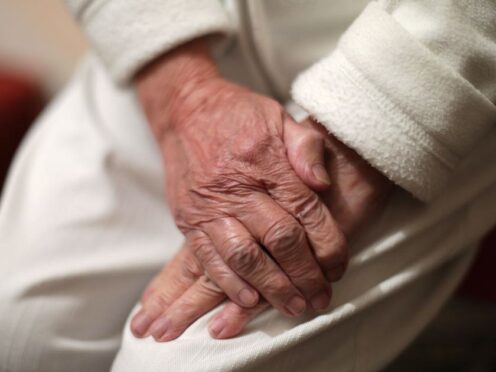
Public satisfaction with social care services has dropped to a new low according to a survey, prompting a call for the next government to “take a strong step forward” and make improving it a priority.
Just over one in 10 (13%) of more than 3,000 respondents said they were quite or very satisfied with social care services, while more than half (57%) reported being either quite or very dissatisfied.
The findings, for 2023, show a fall in satisfaction from 14% the previous year.
While not directly comparable to initial findings of around 30% in 2012, due to changes in the question wording, researchers said the percentages follow the similar trend of less satisfaction over the years.
The leading reason for dissatisfaction was inadequate pay, working conditions and training for social care workers (57%), followed by people not getting the social care they need (56%), and not enough support for unpaid carers (49%).
People who had used or had contact with social care services in the previous 12 months had higher dissatisfaction (64%) compared to those who had not (49%).
The findings from the British Social Attitudes survey, published by the Nuffield Trust and The King’s Fund, also showed what the researchers described as a notable difference in views depending on party affiliation.
Both Labour and Liberal Democrat supporters said they were more dissatisfied with social care services (62%), than Conservative supporters (51%).
Simon Bottery, senior fellow in social care at The King’s Fund, said the results are “awful” but “sadly unsurprising”.
He said: “For many years governments have taken too little action on social care and this is now seriously affecting those who draw on services, the families who support them and the staff who work in the sector.
“The results demonstrate the need for immediate action to stabilise the social care system, backed by long-term reform and investment. The next government must take a strong step forward and prioritise social care.”
Cyril Lobont, researcher at the Nuffield Trust, said: “The results make it clear that too many people with care needs and their families are still struggling to access a reasonable level of support.
“Politicians of all parties need to prioritise reversing this record low satisfaction. What is left of the delayed reform plans at present would barely stabilise the sector, let alone deliver the improvement so desperately needed.”
The most recent survey was carried out in September and October 2023 of 3,374 people across England, Scotland and Wales.
Social care is a devolved matter for governments in Scotland and Wales.
A Department of Health and Social Care spokesperson said: “We want everyone who needs it to have access to high-quality care, which is why we are investing up to £700 million on a major transformation of the adult social care system, including harnessing technology and adapting people’s homes to allow them to live independently.
“We are reforming social care careers with training to improve retention and, for the first time ever, a clear career path and a new accredited qualification to give the profession the recognition it rightly deserves.
“We have also made available up to £8.6 billion in additional funding over two financial years to support adult social care and discharge.”

Enjoy the convenience of having The Sunday Post delivered as a digital ePaper straight to your smartphone, tablet or computer.
Subscribe for only £5.49 a month and enjoy all the benefits of the printed paper as a digital replica.
Subscribe